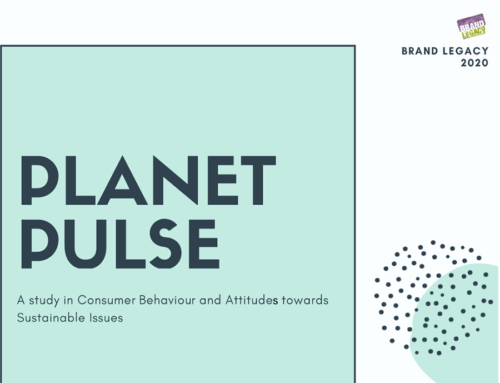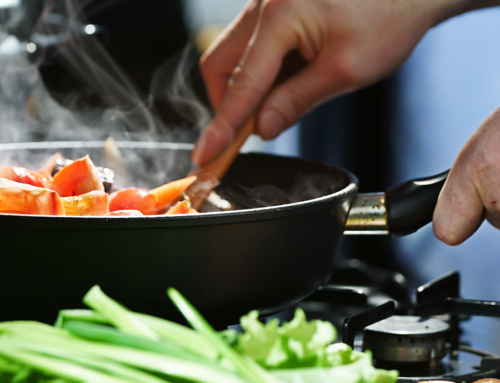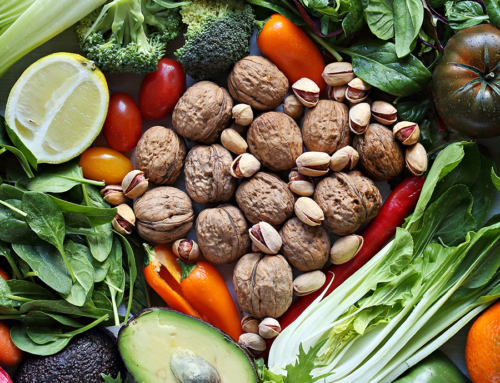Has lockdown halted progress on reducing plastic packaging?
We recently asked 1,000 UK consumers to tell us about their main environmental concerns, and plastic waste is clearly right up there alongside climate change. But during lockdown, changing shopping behaviour slowed progress on reducing plastic consumption.
What was happening before lockdown?
For shoppers at the start of 2020, the most likely anti-plastic behaviour to adopt was the re-use of existing carrier bags, with 70% of shoppers using their existing bags very often. Other anti-plastic shopping choices were far less frequent. Only 23% of shoppers were buying loose fruit and veg very often and less than 10% claimed to actively avoid plastic packaging for food and personal care products very often (about 1 in 4 very or quite often) And it was a similar story for using refill packs.
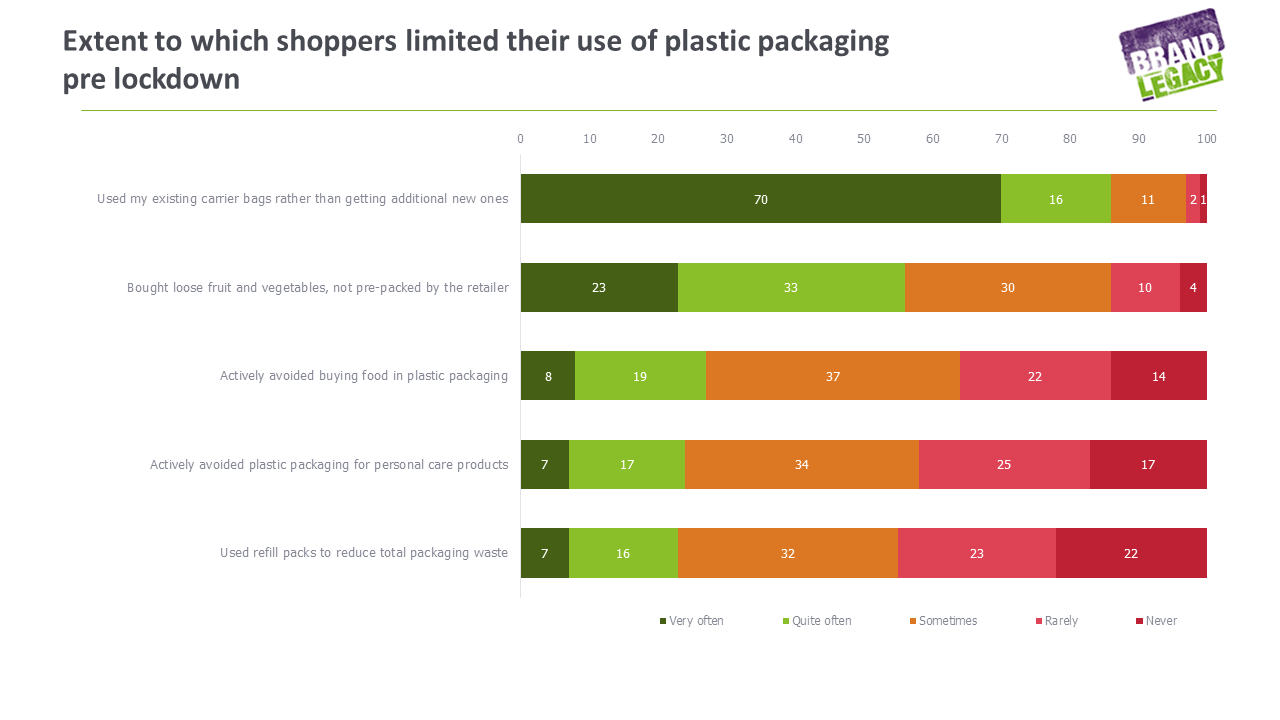
What changed during lockdown?
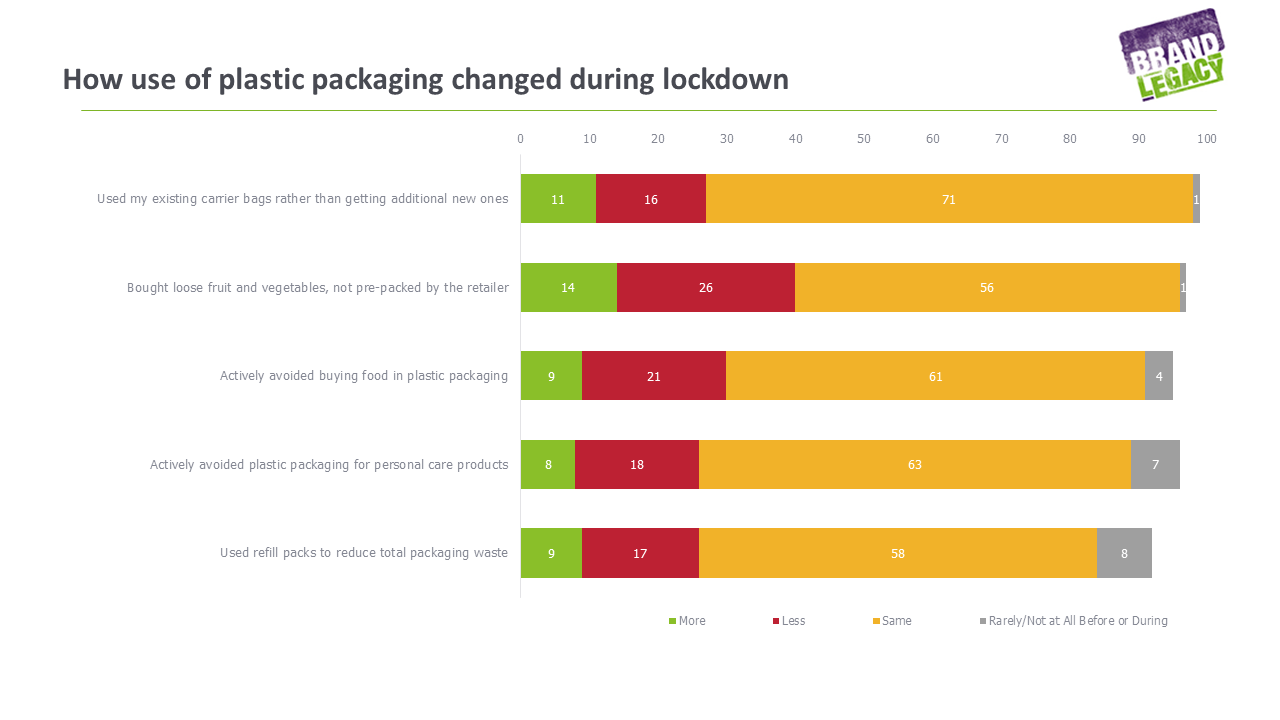
What changed during lockdown?
Although as we saw in our last blog, lockdown living had a positive effect on the environment on factors such as lowering car usage and consumption of non-essentials, the impact on use of plastic packaging appears to have been slightly negative. On all five of our key measures of green packaging behaviour, amongst our sample of nearly 1,000 shoppers, there were greater numbers saying they were in fact using more plastic in their grocery shopping, rather than using less. It’s not a huge change, but a clear trend nevertheless.
We thought this might relate to the increase in online shopping, with online shoppers having less control over how their shopping was packaged than when selecting for themselves in store. But our analysis shows that while increased online shopping does correlate with the slight decline in shoppers re-using their own carrier bags (logical as the supermarket is doing the packing), it doesn’t correlate with the other changes in packaging behaviour. Our alternative hypothesis is that consumers just became less discerning about packaging in lockdown – driven by more pragmatic considerations such as speed of completing the shopping experience, availability and price.
Overall, it’s fair to say that consumer action on more sustainable packaging solutions seems to have gone into slight reverse as a result of Covid-19, and it will need collective will from manufacturers, retailers and consumers to start moving forward on this again.
We recently asked 1,000 UK consumers to tell us about their main environmental concerns, and plastic waste is clearly right up there alongside climate change. But during lockdown, changing shopping behaviour slowed progress on reducing plastic consumption.
What was happening before lockdown?
For shoppers at the start of 2020, the most likely anti-plastic behaviour to adopt was the re-use of existing carrier bags, with 70% of shoppers using their existing bags very often. Other anti-plastic shopping choices were far less frequent. Only 23% of shoppers were buying loose fruit and veg very often and less than 10% claimed to actively avoid plastic packaging for food and personal care products very often (about 1 in 4 very or quite often) And it was a similar story for using refill packs.
What changed during lockdown?
Although as we saw in our last blog, lockdown living had a positive effect on the environment on factors such as lowering car usage and consumption of non-essentials, the impact on use of plastic packaging appears to have been slightly negative. On all five of our key measures of green packaging behaviour, amongst our sample of nearly 1,000 shoppers, there were greater numbers saying they were in fact using more plastic in their grocery shopping, rather than using less. It’s not a huge change, but a clear trend nevertheless.
We thought this might relate to the increase in online shopping, with online shoppers having less control over how their shopping was packaged than when selecting for themselves in store. But our analysis shows that while increased online shopping does correlate with the slight decline in shoppers re-using their own carrier bags (logical as the supermarket is doing the packing), it doesn’t correlate with the other changes in packaging behaviour. Our alternative hypothesis is that consumers just became less discerning about packaging in lockdown – driven by more pragmatic considerations such as speed of completing the shopping experience, availability and price.
Overall, it’s fair to say that consumer action on more sustainable packaging solutions seems to have gone into slight reverse as a result of Covid-19, and it will need collective will from manufacturers, retailers and consumers to start moving forward on this again.

